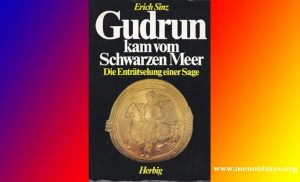Gudrunlied or Kudrun-A Review
Gudrunlied or Kudrun-A Review
Gudrunlied or Kudrun-A Review
“Gudrunlied,” also known as “Kudrun,” is a medieval epic poem that holds a significant place in German literature and Old High German poetry. Composed in the 13th century, this epic narrative poem has captivated scholars and enthusiasts alike with its portrayal of strong women, themes of heroism, and exploration of cultural and historical values. The poem consists of approximately 8,000 lines and is written in rhymed couplets.
Plot and Structure:
“Gudrunlied” centers around the life and adventures of its eponymous protagonist, Gudrun. The poem is divided into four parts, each focusing on a different phase of Gudrun’s life:
Gudrun’s Childhood: The narrative begins with Gudrun’s upbringing as a princess in the court of her father, King Hetel of Normandy. Her idyllic childhood takes a tragic turn when her father is betrayed and killed. Gudrun is taken captive by the invading Hetel, who later falls in love with her.
Gudrun’s Captivity and Escape: This section follows Gudrun’s experiences as a captive in the Hunnish court. Here, she faces adversity and the hardships of servitude, but eventually manages to escape with the help of Hetel.
Hetel’s Quest and Gudrun’s Rescue: In this part, the narrative shifts to focus on Hetel’s endeavors to rescue Gudrun after her escape. The story incorporates elements of heroism, valor, and chivalry as Hetel engages in battles and undertakes a perilous journey to find and free Gudrun.
Gudrun’s Later Life: The final section of the epic deals with Gudrun’s later life, her marriage to Hetel, and the resolution of the conflicts that have shaped her journey. The poem concludes on a relatively positive note, emphasizing themes of reconciliation and renewal.
Themes:
Strong Female Characters:** One of the most striking aspects of “Gudrunlied” is its portrayal of strong and resilient female characters. Gudrun herself stands out as a determined and resourceful individual who overcomes adversity and takes control of her destiny.
Heroism and Honor: The poem explores the concept of heroism and honor through characters like Hetel, who embarks on a heroic quest to rescue Gudrun. Their actions are often guided by a sense of duty, loyalty, and chivalry.
Cultural Values: “Gudrunlied” provides insights into the cultural values and norms of the medieval Germanic society. It reflects the importance of loyalty, kinship, and the codes of behavior that governed relationships within the aristocratic class.
Love and Relationships: The poem delves into various forms of love and relationships, including romantic love, familial bonds, and the relationships between rulers and their subjects.
Style and Language:
The poem is written in Old High German, a predecessor of modern German, which might pose challenges for modern readers due to linguistic differences. The use of rhymed couplets and poetic devices contributes to its rhythmic flow and lyrical quality.
Significance:
“Gudrunlied” is a valuable piece of literature for its historical and cultural insights into medieval Germanic society. Its focus on strong female characters and themes of heroism distinguishes it from many other medieval epic poems that often center around male protagonists. The poem’s narrative structure and thematic depth make it a significant contribution to the genre of medieval epic poetry.
In conclusion, “Gudrunlied,” or “Kudrun,” stands as a remarkable piece of medieval German literature that offers a window into the values, beliefs, and narratives of its time. Its portrayal of strong women, exploration of heroism, and cultural insights continue to make it a subject of study and appreciation in the field of literature. 0 0 0.
Gudrunlied or Kudrun-A Review
You May Like: Beowulf-A Review
N.B. The article ‘—‘ originally belongs to the book entitled ‘The Reviews of Epic Literature Around the World Vol-II‘ by Menonim Menonimus.








